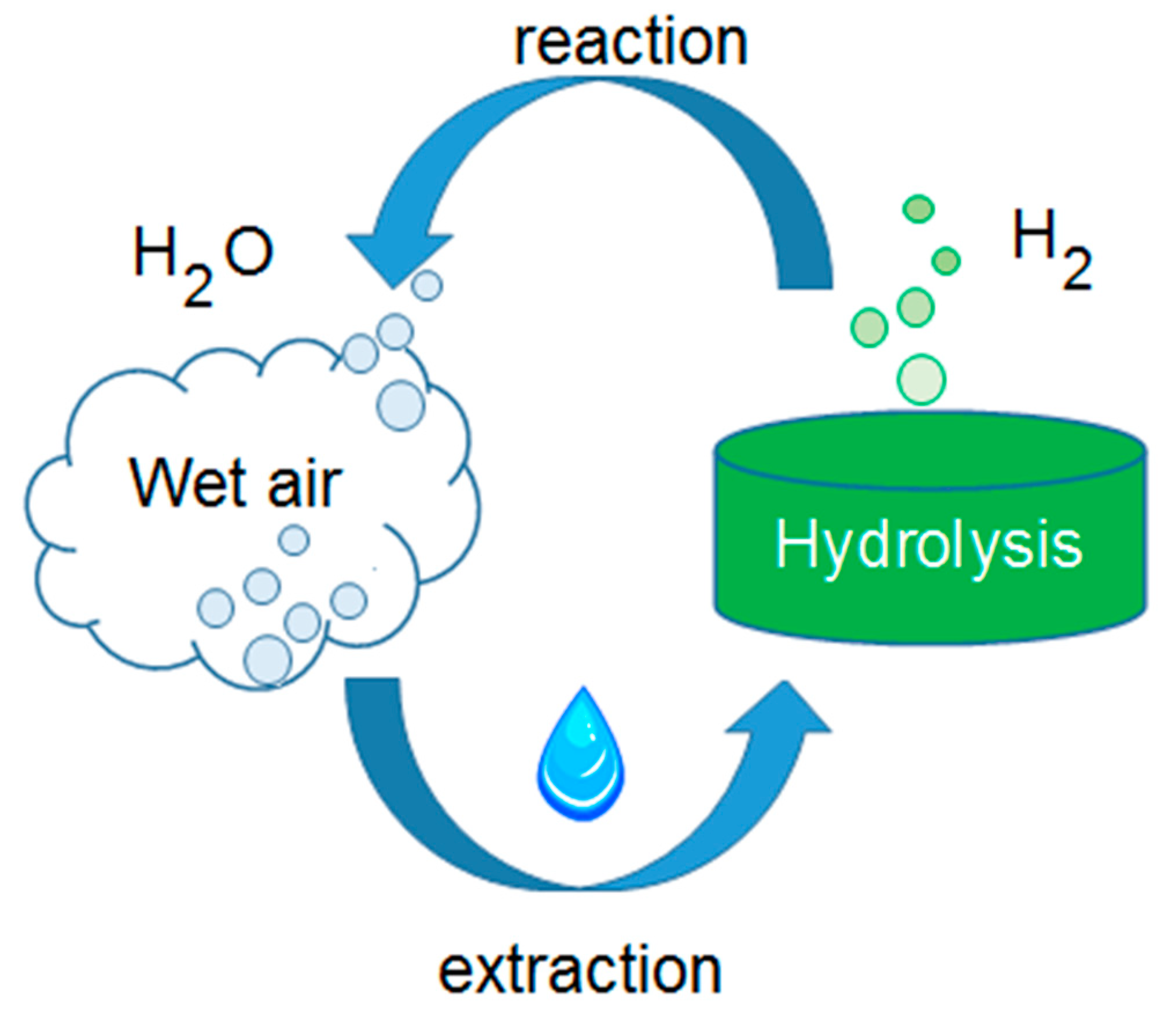In a pivotal move toward advancing sustainable energy, Montana Technologies Corporation and Climate Impact Corporation (CIC) have embarked on a significant partnership to revolutionize renewable hydrogen production. This collaboration is set to integrate cutting-edge atmospheric water generation technology with advanced hydrogen production modules, paving the way for a more sustainable and economically viable hydrogen production process.

A Partnership Rooted in Innovation
Montana Technologies, known for its groundbreaking AirJoule® technology, is at the forefront of atmospheric water generation. This innovative technology, designed to extract water from both humid and arid atmospheres, is poised to make a substantial impact on the hydrogen production landscape. Through a Memorandum of Understanding (MoU) with CIC, Montana Technologies will see its AirJoule® atmospheric water generators become a key component in CIC’s renewable hydrogen production units.
Matt Jore, CEO of Montana Technologies, encapsulated the essence of this partnership by stating, “Our goal is simple – effectively address the ongoing climate crisis by utilizing the Earth’s natural water cycles as a renewable resource. Our globally patented AirJoule® technology allows for the highly efficient extraction of water from the atmosphere, which is a key element of CIC’s renewable hydrogen production modules.” This collaboration is a testament to the shared commitment of both companies to combat climate change through innovative technology.

>> In Other News: [x](x)
Leveraging the AirJoule® Technology
At the heart of this partnership is the integration of Montana Technologies’ AirJoule® technology into CIC’s modular hydrogen production units. AirJoule® atmospheric water generators are uniquely capable of harvesting water from the air, even in arid environments. The units use metal organic framework coated contactors and a dual vacuum chamber to efficiently adsorb and desorb water from the atmosphere, producing pure distilled water and dehumidified air.
This capability is crucial for CIC’s hydrogen production modules, which are designed to operate entirely off-grid. Each module includes solar panels, atmospheric water generators, and electrolysers, enabling the production of renewable hydrogen without relying on external water sources. This system allows hydrogen to be produced economically, even in remote locations with high sun exposure, such as deserts. The anticipated production cost is a competitive USD$2 per kilogram, making this approach a game-changer in the hydrogen industry.
Bryan Barton, Chief Commercialization Officer at Montana Technologies, emphasized the importance of collaboration in achieving meaningful climate outcomes, stating, “We believe that strategic partnerships are essential in making a meaningful contribution to climate change, so we are delighted to be working in collaboration with CIC on optimizing their renewable hydrogen production modules with AirJoule® to enable better global climate outcomes.” The integration of AirJoule® technology not only enhances the efficiency of CIC’s hydrogen production modules but also aligns with the broader goal of reducing carbon emissions globally.
The Future of Renewable Hydrogen
CIC, a global leader in large-scale green hydrogen projects, has set ambitious goals for the future. The company plans to develop two 10GW renewable hydrogen projects in central Australia, utilizing its proprietary technology in conjunction with AirJoule® atmospheric water generators. These projects are just the beginning, with CIC aiming to expand its efforts to other locations worldwide.
The integration of AirJoule® technology into these projects allows for hydrogen production in regions that were previously considered unsuitable due to their harsh environmental conditions. This innovative approach opens up new possibilities for renewable hydrogen production, particularly in areas with high sun exposure and limited water resources.
David Green, Chairman and Co-Founder of CIC, highlighted the significance of this partnership in the broader context of energy transition. He remarked, “A successful energy transition cannot be achieved in a silo. That’s why we believe in establishing strong partnerships with companies that share our same objective. Our collaboration with Montana Technologies will play a key role in unlocking a competitive production price for renewable hydrogen. Through this agreement, we want to revolutionize hydrogen production, enabling hydrogen to be produced not only at a competitive price, but in a range of locations.” This collaboration is a clear example of how strategic partnerships can drive innovation and make sustainable energy solutions more accessible.
Montana Technologies: Pioneering Atmospheric Water Generation
Montana Technologies Corporation (NASDAQ: AIRJ) has carved out a niche in the sustainable technology sector with its development of AirJoule®, a revolutionary atmospheric thermal energy and water harvesting technology. This technology not only provides efficient air dehumidification but also generates pure water from air, making it a versatile tool in the fight against climate change. Montana Technologies is commercializing AirJoule® through a joint venture with GE Vernova and partnerships with Carrier Global Corporation and BASF.
The company’s mission is to leverage natural resources in innovative ways, reducing energy consumption and generating material cost efficiencies. By integrating AirJoule® technology into CIC’s hydrogen production modules, Montana Technologies is taking a significant step toward making renewable energy more sustainable and accessible on a global scale.
Climate Impact Corporation: A Leader in Green Hydrogen Projects
Climate Impact Corporation is a global developer and manager of large-scale green hydrogen projects. With over 40 years of experience, CIC is dedicated to creating economic opportunities, environmental benefits, and sustainable energy solutions that support the transition to a low-carbon future. The company’s expertise in green hydrogen production is complemented by its commitment to innovative technology and strategic partnerships.
Through its collaboration with Montana Technologies, CIC is poised to set new standards in the renewable hydrogen industry. The integration of AirJoule® technology into its hydrogen production modules represents a significant advancement in the field, making renewable hydrogen more competitive and accessible.
In conclusion, the partnership between Montana Technologies Corporation and Climate Impact Corporation is a powerful example of how collaboration and innovation can drive progress in the renewable energy sector. By combining their expertise and resources, these companies are not only advancing the development of renewable hydrogen but also contributing to the global effort to combat climate change. As this partnership continues to evolve, it is likely to have a lasting impact on the future of sustainable energy.
Subscribe to the newsletter
Daily decarbonization data and news delivered to your inbox
Follow the money flow of climate, technology, and energy investments to uncover new opportunities and jobs.
Latest issues
-
Inside America’s Carbon Capture Reality Check
Inside This Issue ⚡ Duke Energy Florida Goes Live With First 100% Hydrogen System ✈️ Air bp Signs Agreement With Airbus on Flight Services and Fuel Supplies in Europe 🌊 Pairing Reefs and Mangroves...
-
Three Nebraska Plants Prove Ethanol CCS Actually Works
Inside this Issue 🌽 Three Nebraska Plants Prove Ethanol CCS Actually Works ☀️ SunHydrogen and CTF Solar Sign Agreement to Accelerate Hydrogen Panel Manufacturing 🧪 GenH2 Completes Major Milestone:...
-
DOE Doubles Down on $1/kg Clean Hydrogen Goal
Inside This Issue 🎯 Doe Doubles Down on $1/kg Clean Hydrogen Goal 🕳️ Quebec Introduces First Legal Framework for Underground CO2 Storage 🧪 Charbone Announces Its First Hydrogen Supply Hub in the O...
Company Announcements
-
JERA Announces Close of Haynesville Shale Gas Asset in Louisiana
TOKYO and HOUSTON, Feb. 12, 2026 /PRNewswire/ -- JERA Co. Inc., a global energy leader and Japan's largest power generation company, today announced that through its subsidiary JERA Americas Inc., ...
-
Buffalo Biodiesel Inc. (“BBD”), a leading recycler of waste vegetable used cooking oil (WVUCO) and producer of renewable feedstocks, announced that they have officially renewed a Part 364 Waste Tra...
-
Air bp Signs Agreement With Airbus on Flight Services and Fuel Supplies in Europe
Air bp has signed a multi-year contract with Airbus for the supply of conventional aviation fuel, sustainable aviation fuel (SAF), and related services in Germany and Spain. This agreement enables ...
-
BEND, Ore.--Element 1® Corp. (“e1”), an Oregon-based leader in methanol-to-hydrogen generation technology, today announced the signing of a Memorandum of Understanding (MOU) with Aurosi Precision C...